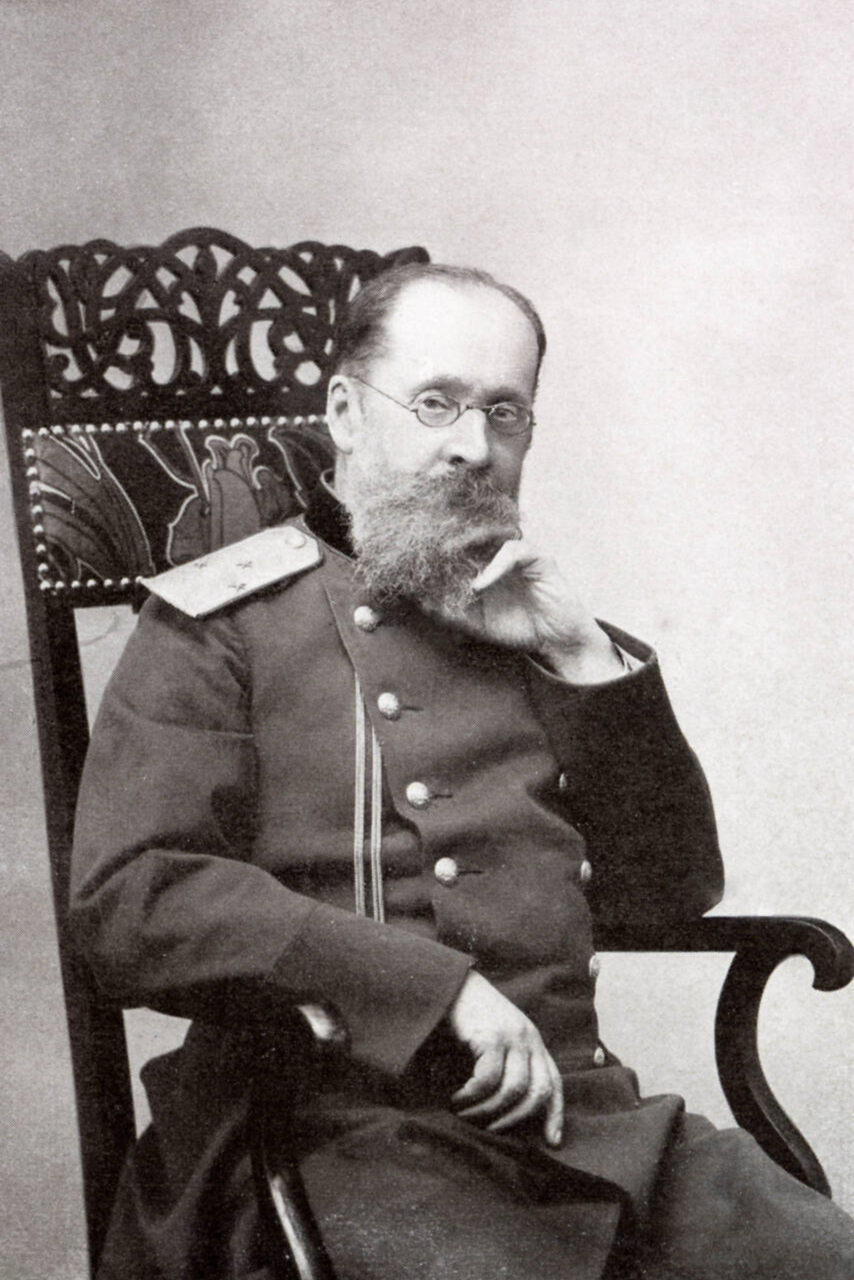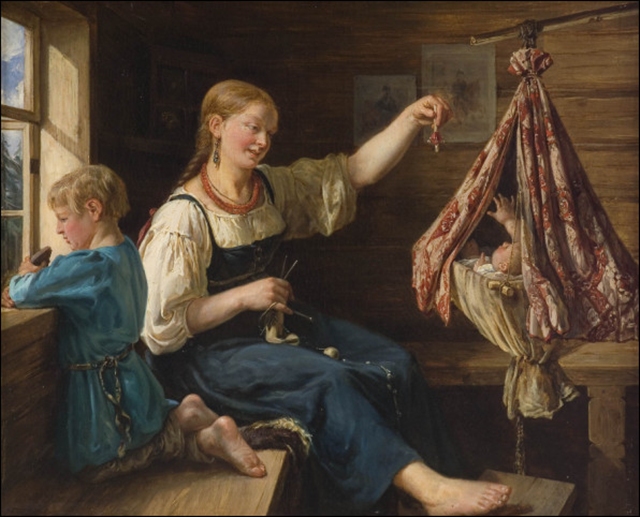|
The Saracen (opera)
''The Saracen'' (''Сарацин'' in Cyrillic, ''Saracin'' in transliteration), is an opera by César Cui composed during 1896–1898. The libretto was written by Vladimir Vasilievich Stasov and the composer, based on a play by Alexandre Dumas (père) entitled ''Charles VII chez ses grands vassaux''. The opera was premiered on 2 November 1899 (Old Style), in Saint Petersburg at the Mariinsky Theatre, with Eduard Nápravník as conductor. It was staged also in 1902 by the Moscow Private Opera at the Solodovnikov Theatre, but never became part of the standard operatic repertoire. ''The Saracen'' can be understood to some extent as a sequel to Tchaikovsky's opera '' The Maid of Orleans'' in that later events involving the same French monarch are involved. Characters and setting * Charles VII, King of France: ''tenor'' *Count Savoisy: '' bass'' *Yaqoub, a Saracen: '' baritone'' *Bérengère, Countess Savoisy: '' soprano'' *Agnès Sorel: ''soprano'' *Dunois: ''baritone'' *Isabe ... [...More Info...] [...Related Items...] OR: [Wikipedia] [Google] [Baidu] |
Cesar Cui
Cesar, César or Cèsar may refer to: Arts, entertainment, and media * ''César'' (film), a 1936 film directed by Marcel Pagnol * ''César'' (play), a play by Marcel Pagnolt * César Award, a French film award Places * Cesar, Portugal * Cesar River, a river within the Magdalena Basin of Colombia * Cesar River, Chile * Cesar Department, Colombia Other uses * César (grape), an ancient red wine grape from northern Burgundy * French ship ''César'' (1768), ship of the line, destroyed 1782 * Recife Center for Advanced Studies and Systems (C.E.S.A.R), in Brazil * Cesar, a brand of dog food manufactured by Mars, Incorporated People with the given name * César (footballer, born May 1979), César Vinicio Cervo de Luca, Brazilian football centre-back * César (footballer, born July 1979), Clederson César de Souza, Brazilian football winger * César Alierta (born 1945), Spanish businessman * César Augusto Soares dos Reis Ribela (born 1995), Brazilian footballer * César Az ... [...More Info...] [...Related Items...] OR: [Wikipedia] [Google] [Baidu] |
Saracen
upright 1.5, Late 15th-century German woodcut depicting Saracens Saracen ( ) was a term used in the early centuries, both in Greek and Latin writings, to refer to the people who lived in and near what was designated by the Romans as Arabia Petraea and Arabia Deserta. The term's meaning evolved during its history of usage. During the Early Middle Ages, the term came to be associated with the tribes of Arabia. The oldest known source mentioning "Saracens" in relation to Islam dates back to the 7th century, in the Greek-language Christian tract ''Doctrina Jacobi''. Among other major events, the tract discusses the Muslim conquest of the Levant, which occurred after the rise of the Rashidun Caliphate following the death of the Islamic prophet Muhammad. The Roman-Catholic church and European Christian leaders used the term during the Middle Ages to refer to Muslims—usually Arabs, Turks, and Iranians. By the 12th century, "Saracen" had become synonymous with "Muslim" in Me ... [...More Info...] [...Related Items...] OR: [Wikipedia] [Google] [Baidu] |
Russian-language Operas
Russian (russian: русский язык, russkij jazyk, link=no, ) is an East Slavic language mainly spoken in Russia. It is the native language of the Russians, and belongs to the Indo-European language family. It is one of four living East Slavic languages, and is also a part of the larger Balto-Slavic languages. Besides Russia itself, Russian is an official language in Belarus, Kazakhstan, and Kyrgyzstan, and is used widely as a lingua franca throughout Ukraine, the Caucasus, Central Asia, and to some extent in the Baltic states. It was the ''de facto'' language of the former Soviet Union, Constitution and Fundamental Law of the Union of Soviet Socialist Republics, 1977: Section II, Chapter 6, Article 36 and continues to be used in public life with varying proficiency in all of the post-Soviet states. Russian has over 258 million total speakers worldwide. It is the most spoken Slavic language, and the most spoken native language in Europe, as well as the most geographica ... [...More Info...] [...Related Items...] OR: [Wikipedia] [Google] [Baidu] |
Operas By César Cui
Opera is a form of theatre in which music is a fundamental component and dramatic roles are taken by Singing, singers. Such a "work" (the literal translation of the Italian word "opera") is typically a collaboration between a composer and a libretto, librettist and incorporates a number of the performing arts, such as acting, Theatrical scenery, scenery, costume, and sometimes dance or ballet. The performance is typically given in an opera house, accompanied by an orchestra or smaller musical ensemble, which since the early 19th century has been led by a conducting, conductor. Although musical theatre is closely related to opera, the two are considered to be distinct from one another. Opera is a key part of the Western culture#Music, Western classical music tradition. Originally understood as an entirely sung piece, in contrast to a play with songs, opera has come to include :Opera genres, numerous genres, including some that include spoken dialogue such as ''Singspiel'' and ... [...More Info...] [...Related Items...] OR: [Wikipedia] [Google] [Baidu] |
Lullaby
A lullaby (), or cradle song, is a soothing song or piece of music that is usually played for (or sung to) children (for adults see music and sleep). The purposes of lullabies vary. In some societies they are used to pass down cultural knowledge or tradition. In addition, lullabies are often used for the developing of communication skills, indication of emotional intent, maintenance of infants' undivided attention, modulation of infants' arousal, and regulation of behavior. Perhaps one of the most important uses of lullabies is as a sleep aid for infants. As a result, the music is often simple and repetitive. Lullabies can be found in many countries, and have existed since ancient times. Etymology The term 'lullaby' derives from the Middle English ''lullen'' ("to lull") and ''by'' 'e''(in the sense of "near"); it was first recorded circa 1560. A folk etymology derives ''lullaby'' from "Lilith-Abi" (Hebrew for " Lilith, begone"). In the Jewish tradition, Lilith was a demon who ... [...More Info...] [...Related Items...] OR: [Wikipedia] [Google] [Baidu] |
Richard Wagner
Wilhelm Richard Wagner ( ; ; 22 May 181313 February 1883) was a German composer, theatre director, polemicist, and conductor who is chiefly known for his operas (or, as some of his mature works were later known, "music dramas"). Unlike most opera composers, Wagner wrote both the libretto and the music for each of his stage works. Initially establishing his reputation as a composer of works in the romantic vein of Carl Maria von Weber and Giacomo Meyerbeer, Wagner revolutionised opera through his concept of the '' Gesamtkunstwerk'' ("total work of art"), by which he sought to synthesise the poetic, visual, musical and dramatic arts, with music subsidiary to drama. He described this vision in a series of essays published between 1849 and 1852. Wagner realised these ideas most fully in the first half of the four-opera cycle '' Der Ring des Nibelungen'' (''The Ring of the Nibelung''). His compositions, particularly those of his later period, are notable for their complex textur ... [...More Info...] [...Related Items...] OR: [Wikipedia] [Google] [Baidu] |
Number (music)
In music, number refers to an individual song, dance, or instrumental piece which is part of a larger work of musical theatre, opera, or oratorio. It can also refer either to an individual song in a published collection or an individual song or dance in a performance of several unrelated musical pieces as in concerts and revues. Both meanings of the term have been used in American English since the second half of the 19th century. Musical theatre and related genres In musical theatre, the lyrics of the individual song numbers are integrated with the narrative of the libretto (or "book"). As early as 1917, Jerome Kern wrote that "musical numbers should carry on the action of the play, and should be representative of the personalities of the characters who sing them." The lyricist Oscar Hammerstein, another proponent of this view, even refused to list the numbers in '' Rose-Marie'' because he thought it would detract from what he viewed as the close integration between the book an ... [...More Info...] [...Related Items...] OR: [Wikipedia] [Google] [Baidu] |
Sheet Music
Sheet music is a handwritten or printed form of musical notation that uses musical symbols to indicate the pitches, rhythms, or chords of a song or instrumental musical piece. Like its analogs – printed books or pamphlets in English, Arabic, or other languages – the medium of sheet music typically is paper (or, in earlier centuries, papyrus or parchment). However, access to musical notation since the 1980s has included the presentation of musical notation on computer screens and the development of scorewriter computer programs that can notate a song or piece electronically, and, in some cases, "play back" the notated music using a synthesizer or virtual instruments. The use of the term "sheet" is intended to differentiate written or printed forms of music from sound recordings (on vinyl record, cassette, CD), radio or TV broadcasts or recorded live performances, which may capture film or video footage of the performance as well as the audio component. In ever ... [...More Info...] [...Related Items...] OR: [Wikipedia] [Google] [Baidu] |
Antipope Benedict XIII
Pedro Martínez de Luna y Pérez de Gotor (25 November 1328 – 23 May 1423), known as in Spanish and Pope Luna in English, was an Aragonese nobleman who, as Benedict XIII, is considered an antipope (see Western Schism) by the Catholic Church. Early life Pedro Martínez de Luna was born at Illueca, Kingdom of Aragon (part of modern Spain), in 1328. He belonged to the de Luna family, who were part of the Aragonese nobility. He studied law at the University of Montpellier, where he obtained his doctorate and later taught canon law. His knowledge of canon law, noble lineage, and austere way of life won him the approval of Pope Gregory XI, who appointed de Luna to the position of Cardinal Deacon of Santa Maria in Cosmedin on 20 December 1375.Kirsch, Johann Peter. "Pedro de Luna." The Catholic Encycl ... [...More Info...] [...Related Items...] OR: [Wikipedia] [Google] [Baidu] |
Choir
A choir ( ; also known as a chorale or chorus) is a musical ensemble of singers. Choral music, in turn, is the music written specifically for such an ensemble to perform. Choirs may perform music from the classical music repertoire, which spans from the medieval era to the present, or popular music repertoire. Most choirs are led by a conductor, who leads the performances with arm, hand, and facial gestures. The term ''choir'' is very often applied to groups affiliated with a church (whether or not they actually occupy the quire), whereas a ''chorus'' performs in theatres or concert halls, but this distinction is not rigid. Choirs may sing without instruments, or accompanied by a piano, pipe organ, a small ensemble, or an orchestra. A choir can be a subset of an ensemble; thus one speaks of the "woodwind choir" of an orchestra, or different "choirs" of voices or instruments in a polychoral composition. In typical 18th century to 21st century oratorios and masses, 'ch ... [...More Info...] [...Related Items...] OR: [Wikipedia] [Google] [Baidu] |







